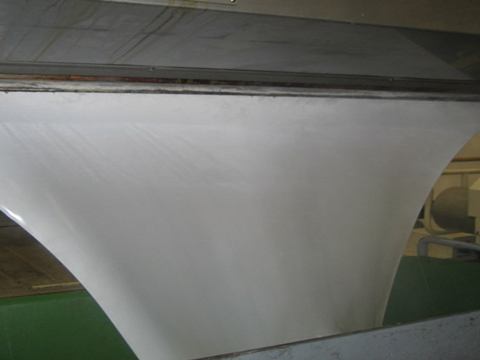
Smart Planet Technologies aims to facilitate a transition into paper-based flexible packaging with its recyclable nanocomposite coating – said to offer ten times the moisture barrier and twenty times the oxygen barrier performance of conventional polyethylene coatings.
Replacing flexible plastics with paper alternatives has previously been a challenge, the company explains. Product freshness and shelf life could be compromised when 100% plastic coatings fail to offer the necessary barrier qualities.
Furthermore, plastic coatings can impact the recyclability of paper-based solutions and condemn them to landfill at end-of-life. A similar issue arises with multi-layer film lamination and such treatments as EVOH or metallization, which can complicate the recycling process and also drive up production costs.
In a bid to prevent brands from relying on plastic packaging, Smart Planet Technologies has utilized its Earth Coating technology, which combines minerals with polymers to achieve high barrier properties, and designed HyperBarrier to feature 40% mineral content. It is thought to reduce plastic consumption, support existing paper recycling processes, improve the quality of recycled bales, and reduce waste.
At the same time, the coating is said to offer ‘unmatched’ protection and ‘significantly’ extend the shelf life of various products. Traditional coating functionalities like heat sealability and food contact compliance are carried over from traditional solutions.
Additionally, the solution is set to be compatible with existing manufacturing setups without additional investments and negate the need for expensive, multi-layer structures, thus lowering costs and streamlining the manufacturing process.
Smart Planet Technologies hopes that HyperBarrier will drive companies to embrace paper-based packaging in pursuit of their own sustainability targets and an industrial push for a circular economy.
Chris Tilton, co-founder and inventor at Smart Planet Technologies, comments: “While the industry has focused on developing new plastics for sustainability, our approach with mineralized coatings has shown superior results in enhancing packaging performance, reducing plastic use, and ensuring recyclability.”
Earlier this year, Kemira and PA Consulting joined forces to apply a polysaccharide-based barrier coating to flexible food packaging – pursuing a renewable and recyclable packaging solution that complies with consumer and regulatory demand.
Around the same time, Berry Global and Mitsubishi Gas Chemical Company coated thermoformed tubes, jars, and bottles with a recyclable, EVOH-free barrier resin. The solution sought to improve the recyclability of food packaging while overcoming issues like degradation and contamination in the recycling process.
Archroma’s water-based, recyclable, and repulpable Cartaseal OGB F10 barrier coating has also been designed to help food- and non-food packaging made of paper and board resist oil and grease without the use of PFAS.
If you liked this story, you might also enjoy:
The Brief: How viable is biorecycling for plastics?
Report: How the top brands are progressing on packaging sustainability
The Brief: Using ocean-bound plastic in packaging – how, why and should we?














No comments yet